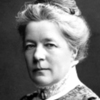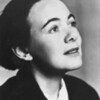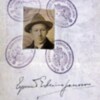Hjalmar Söderberg (1869–1941)
Author of Doctor Glas
About the Author
Works by Hjalmar Söderberg
Kära Hjalle, kära Bo : Bo Bergmans och Hjalmar Söderbergs brevväxling 1891-1941 — Author; Author — 7 copies
Doktor Glas : Förvillelser 7 copies
Martin Bircks ungdom : Gamla minnen 6 copies
Historietter och noveller 6 copies
Den talangfulla draken : En novell 6 copies
Ödestimmen : skådespel i tre akter 4 copies
Noveller. 2 4 copies
Noveller. 1 4 copies
Samlade verk. D. 8, Forntid och saga 4 copies
Den talangfulla draken : historier 3 copies
Skrifter. D. 10, Vers och varia 3 copies
[Skrifter]. 2, Gertrud ; Aftonstjärnan ; Den allvarsamma leken ; Noveller ; Dikter ; Journalistik 3 copies
La kiso : kaj dek tri aliaj noveloj 3 copies
Samlade verk. D. 6, Dramatik 3 copies
Aforismer och maximer 2 copies
Skrifter. D. 6 2 copies
The Burning City [short story] 2 copies
Resan till Rom : noveller 2 copies
Valda sidor 2 copies
[Skrifter]. 1, Förvillelser ; Historietter ; Martin Bircks ungdom ; Doktor Glas ; Hjärtats oro 2 copies
Det mörknar över vägen 2 copies
Novelletter 1 copy
Selected Short Stories 1 copy
Litterärt varia II 1 copy
Sista boken 1 copy
Historietter : ett urval 1 copy
Gertrud, Aftonstjärnan 1 copy
Vers och varia 1 copy
De pentekening 1 copy
Hjalmar Söderberg 1 copy
Den llvarsamma leken 1 copy
Svalans svenska klassiker: Martin Bircks ungdom, Gertrud, Historietter, Noveller, Vers, Varia 1 copy
Den talangfulla draken 1 copy
Il dottor Glas 1 copy
Associated Works
A Very Scandinavian Christmas: The Greatest Nordic Holiday Stories of All Time (Very Christmas, 4) (2019) — Contributor — 22 copies, 2 reviews
Meesters der Zweedse vertelkunst — Author, some editions — 10 copies
Svenske fortællere fra August Strindberg til Harry Martinson — Author, some editions — 1 copy, 1 review
Tagged
Common Knowledge
- Canonical name
- Söderberg, Hjalmar
- Legal name
- Söderberg, Hjalmar Erik Fredrik
- Birthdate
- 1869-07-02
- Date of death
- 1941-10-14
- Burial location
- Vestre Kirkegård, København, Denmark
- Gender
- male
- Nationality
- Sweden
- Country (for map)
- Sweden
- Birthplace
- Stockholm, Sweden
- Place of death
- Copenhagen, Denmark
- Places of residence
- Stockholm, Sweden
Copenhagen, Denmark - Education
- Uppsala University
- Occupations
- civil servant
critic
novelist
short-story writer
playwright - Relationships
- Söderberg, Tom (son)
Söderberg, Mikael (son)
Stangerup, Henrik (grandson) - Awards and honors
- De Nios stora pris (1934)
Gustaf Fröding-stipendiet (1941) - Short biography
- Hjalmar Emil Fredrik Söderberg, né le 2 juillet 1869 à Stockholm et mort le 14 octobre 1941 à Copenhague, est un romancier, auteur dramatique, poète et journaliste suédois. C'est le grand-père maternel de l'écrivain danois Henrik Stangerup (1937-1998).
Il débute dans le monde littéraire à l'âge de vingt ans en écrivant pour le quotidien suédois Svenska Dagbladet. Il sort six ans plus tard son premier roman, Förvillelser (Égarements). Il s'intéresse à la fin de sa vie au journalisme. Il a critiqué le nazisme avec véhémence, écrivant longuement à ce sujet dans le quotidien libéral, très anti-nazi, suédois Göteborgs Handels- och Sjöfartstidning.
Members
Reviews
Lists
Awards
You May Also Like
Associated Authors
Statistics
- Works
- 103
- Also by
- 9
- Members
- 2,263
- Popularity
- #11,342
- Rating
- 3.9
- Reviews
- 63
- ISBNs
- 240
- Languages
- 23
- Favorited
- 21



















Personally, I have never felt that I had to be able to pronounce an author’s name in order to read their books. Apparently things were different in the early 1960s! Anyway, turning to the novel itself, ‘Doctor Glas’ is told in the form of a diary. A little like [b:The Notebooks of Malte Laurids Brigge|93405|The Notebooks of Malte Laurids Brigge|Rainer Maria Rilke|https://images.gr-assets.com/books/1348925210s/93405.jpg|314321], in fact, except Glas has a job and actually does things, rather than being such a flâneur. The narrative centres on his interference in an unhappy marriage. His perspective is quite progressive for the time of publication (1905) as he discusses abortion, adultery, and sex in a dispassionate fashion. He is himself celibate and lonely. I found his voice distinctive and largely interesting, especially in conversation with his friends. This speech by his friend Birck was a favourite:
Although I appreciated this sort of byplay, the overall turn of the plot did not greatly move me. I can’t really say why without spoilers, however.
I read the introduction last as usual and agreed with a comment in it that ‘Doctor Glas’ has the feeling of a French novel of the same period. Slightly less melodramatic, perhaps, but only slightly. I enjoyed parts of it very much, but the narrative-by-diary put more pressure on Glas as as character than I felt he could really sustain. He spends a great deal of time alone, yet is most intriguing when interacting with others. Moreover, it’s frustrating that Mrs. Gregorius acts as the catalyst of events without being given her own voice or much in the way of identity. She remains rather an enigmatic cypher. Finally, Glas can be more than a little pretentious. In a way this is incongruous with his job, which requires a very visceral engagement with human bodies. At times he really needs someone to bring him down to earth.… (more)